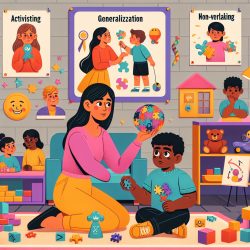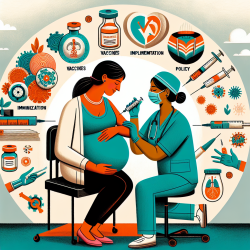The recent study titled "Healthcare provider’s attitude towards disability and experience of women with disabilities in the use of maternal healthcare service in rural Nepal" offers critical insights into the challenges faced by women with disabilities in accessing maternal healthcare. This blog post explores the findings and suggests actionable steps for practitioners to improve their skills and service delivery.
Understanding the Study
The study employed a mixed-method approach, combining quantitative surveys and qualitative interviews to assess the attitudes of 396 healthcare providers and the experiences of 18 women with disabilities. The Attitude Towards Disabled Persons (ATDP) scale was used to measure healthcare providers' attitudes.
Key Findings
The results revealed several key points:
- The mean ATDP score among healthcare providers was 78.52, significantly lower than the normative score of 100 or higher.
- Nurses and auxiliary nurse midwives scored the highest, while Female Community Health Volunteers (FCHVs) scored the lowest.
- Younger providers and those working in urban areas had more positive attitudes.
- There was no significant difference in attitudes between providers who had or had not received disability training.
- Qualitative interviews indicated that many women with disabilities perceived healthcare providers to have negative attitudes and inadequate skills.
Implications for Practice
The study's findings underscore the need for targeted interventions to improve healthcare providers' attitudes and skills. Here are some actionable steps:
- Comprehensive Training: Implement ongoing, effective training programs focused on disability awareness and skills for providing maternal healthcare to women with disabilities.
- Exposure and Interaction: Encourage more direct interaction between healthcare providers and individuals with disabilities to foster empathy and understanding.
- Policy and Curriculum Changes: Advocate for the inclusion of disability-related topics in medical and nursing school curricula and professional development programs.
- Community Engagement: Work with local communities to raise awareness about the needs and rights of people with disabilities, thereby fostering a more inclusive environment.
Encouraging Further Research
While this study provides valuable insights, further research is needed to explore the specific needs of different types of disabilities and to evaluate the effectiveness of training programs. Practitioners are encouraged to participate in or support research initiatives aimed at improving healthcare services for women with disabilities.
Conclusion
Improving the attitudes and skills of healthcare providers towards women with disabilities is crucial for enhancing maternal healthcare services in rural Nepal. By implementing comprehensive training programs, encouraging direct interaction, and advocating for policy changes, we can create a more inclusive and supportive healthcare environment.To read the original research paper, please follow this link:
Healthcare provider’s attitude towards disability and experience of women with disabilities in the use of maternal healthcare service in rural Nepal.










